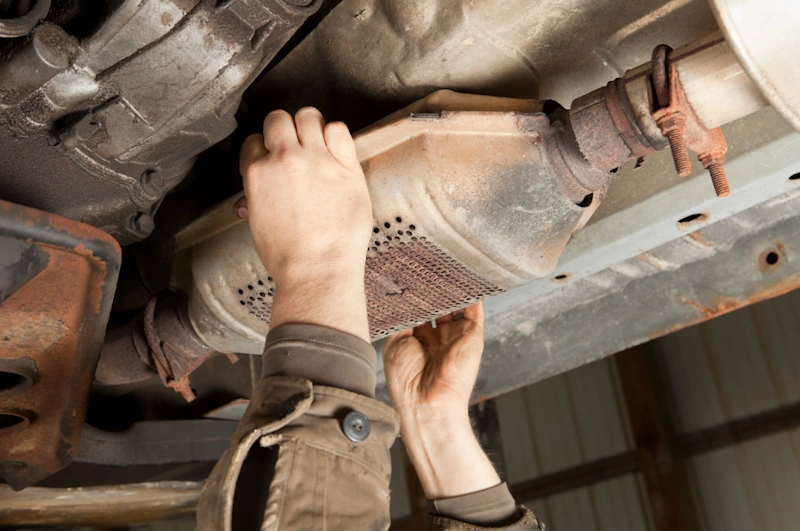Catalytic converters play a significant role in determining the value of a junk car. These essential components have both environmental and economic implications, influencing a vehicle’s overall worth when it reaches its life’s end. This comprehensive article will explore how catalytic converters affect junk car prices, delving into their function, market value, and impact on the recycling industry.
Environmental Impact and Recycling Practices
Beyond their role in emission control, catalytic converters play a crucial part in sustainable practices within the automotive industry. Recycling these devices is essential for reducing the environmental footprint of end-of-life vehicles. The industry minimizes the need for new mining activities by extracting and reusing precious metals, promoting resource conservation and responsible environmental stewardship.
Technological Advancements in Catalytic Converters
The continuous evolution of catalytic converter technologies reflects the automotive industry’s commitment to meeting stringent emissions standards. Ongoing research and development efforts aim to enhance the efficiency of these devices, maximizing pollutant conversion while minimizing the use of precious metals. As advancements progress, the recyclability and eco-friendliness of catalytic converters become pivotal considerations in shaping future automotive design and manufacturing.
Catalytic Converters in Electric Vehicles
While traditional catalytic converters are synonymous with internal combustion engine vehicles, the rise of electric vehicles (EVs) raises questions about their role in emission reduction; as the automotive landscape shifts toward electrification, the recycling of catalytic converters may experience changes, potentially influencing the demand for precious metals. The transition to EVs underscores the dynamic nature of the automotive industry and its impact on recycling practices.
Global Supply Chain Dynamics
Local factors influence the market value of platinum, palladium, and rhodium and is intricately connected to the global supply chain. International trade, geopolitical events, and economic fluctuations contribute to the volatility of precious metal prices. Understanding the interconnected nature of these elements is essential for both the automotive and recycling industries to navigate the complexities of catalytic converter pricing.
Regulatory Frameworks and Compliance Standards
As governments worldwide intensify efforts to combat air pollution and address climate change, regulatory frameworks surrounding emissions control become more stringent. Compliance with these standards influences the design of catalytic converters and the procedures involved in their recycling. Staying abreast of evolving regulations is crucial for industry stakeholders to ensure both environmental responsibility and adherence to legal requirements.
Innovations in Catalytic Converter Protection
The surge in catalytic converter thefts has spurred innovations in protective measures. The automotive industry and consumers are exploring solutions to safeguard these valuable components, from specialized coatings to aftermarket security devices. Collaborative efforts between law enforcement agencies, manufacturers, and the public contribute to a comprehensive approach to combating theft and minimizing its impact on vehicle owners and the recycling industry.
What Are the Major Factors Influencing Junk Car Prices?
Several factors come into play when determining the impact of catalytic converters on junk car prices. These include the vehicle’s make and model, the catalytic converter’s overall condition, and the prevailing market prices of precious metals. Additionally, the rise in catalytic converter thefts has increased scrutiny during the evaluation process, affecting the overall resale value.
1. Vehicle Make and Model
The make and model of a vehicle stand as pivotal determinants in the assessment of junk car prices. Specific makes and models are inherently more desirable due to reliability, popularity, and ease of maintenance. Cars from reputable manufacturers with a strong market presence often fetch higher prices in the junkyard, reflecting the demand for salvageable parts and components. In contrast, less familiar or outdated models may command lower prices as their salvageable parts may have limited utility.
2. Catalytic Converter Condition
The condition of the catalytic converter serves as a critical factor influencing the valuation of a junk car. A well-maintained and functional catalytic converter, free from damage or excessive wear, adds significant value to the overall appraisal. Conversely, a compromised or non-operational catalytic converter may diminish the salvageable value of the vehicle. Detailed inspections of the converter’s integrity, including its structural soundness and emission-reducing capabilities, contribute to a more accurate assessment of the junk car’s worth.
3. Regional Market Dynamics
The location of a junk car’s sale can significantly influence its price. Regional market dynamics, including local demand for specific vehicle types, variations in salvage yard capacities, and environmental regulations, contribute to the nuanced valuation process. In regions with a higher prevalence of specific vehicles or a greater demand for salvageable parts, prices may differ from those in areas with a surplus of similar vehicles. Understanding these regional nuances is crucial for sellers and buyers to navigate the diverse landscape of junk car transactions.
4. Vehicle Demand and Scarcity
The overall demand for certain types of vehicles, whether for restoration projects, spare parts, or recycling purposes, plays a substantial role in determining junk car prices. Rare or sought-after models may command higher prices due to their scarcity and the potential value of their salvageable components. Conversely, commonplace vehicles with readily available parts may have more moderate valuations. Recognizing the ebb and flow of market demand enhances the ability to negotiate favorable deals within the junk car industry.
5. Environmental Compliance and Regulations
Environmental considerations, including compliance with regulations governing the disposal and recycling of end-of-life vehicles, also impact junk car prices. Salvage yards must adhere to stringent environmental standards, ensuring the proper disposal of hazardous materials and the recycling of vehicle components in an eco-friendly manner. Vehicles that align with these regulations may receive preferential treatment in terms of valuation, reflecting the commitment to sustainability within the junk car industry.
In response to catalytic converter thefts and environmental concerns, some regions have implemented legislation to regulate the sale and recycling of these components. Compliance with these regulations may influence the recycling process and, consequently, impact the overall value of junk cars.
Key Takeaways
Catalytic converters, once seen as a simple component for emission control, now play a pivotal role in determining the prices of junk cars. The market value of precious metals, environmental regulations, and the unfortunate rise in thefts all contribute to the complex landscape surrounding the recycling of catalytic converters. As the automotive industry continues to evolve, understanding these factors becomes essential for car owners looking to sell their junk vehicles and the recycling industry striving for sustainability.
Are you looking to sell your old junk vehicle? Contact Junk Yard Dog today, and our courteous staff will answer all your questions for the most stress-free junk car selling experience ever.

